FORT MCPHERSON, Ga. -- In 1979, the movie Rocky II had just been released. Michael Jackson's song "Don't Stop 'Till you Get Enough" and Donna Summer's song "Bad Girls" were at the top of the music charts. Margaret Thatcher had just been elected the first woman prime minister of the United Kingdom, and gas cost 89 cents a gallon.
It was the same year Sgt. Maj. Arthur Adkins, U.S. Army Central, G-6 sergeant major of the Operational Command Post, visited a recruiter in Laurel, Miss., and made the decision to join the Army.
"Back then, I was trying to decide whether or not to join the military or go to college," Adkins said.
The Army offered money for school and the opportunity to travel the world. It also offered him a job in communications.
"I wanted to go to school for electronics," Adkins said. "So I figured I could join up for this, do my three years and come back home and go to the junior college and get the degree I wanted."
During those first three years in the Army, Adkins says he was ready to get out; however, three decades later, Adkins retires during a year that the Army has designated as Year of the NCO and is honoring the NCO corps' impact on the force.
"I am really proud to be going out during the Year of the NCO," he said. "I am happy they [NCOs] are getting the recognition they deserve. The NCO corps is the strongest backbone of the system, the strongest backbone of the Army. I'm a firm believer in it. I've seen the NCO corps do things that are unbelievable."
Over his 30-year career, he has not only seen the Army uniform change from the Army Green to the Battle Dress Uniform to the Desert Combat Uniform and, finally, to the current Army Combat Uniform, he has been a part of the Army's transformation.
"Over a period of time, our education level has stepped up almost 75 percent or better," he said. "The average NCO today is a reader-writer. During my time, in 1979, that was almost unheard of. I think they have better educated us. We have a stronger NCO education system than before, which produces top-notch people who engage in officer's duties and NCO's duties."
One example of this is NCOs' participation in the Battle Staff Course, a course previously offered only to officers.
Throughout his career, Adkins has exemplified this commitment to learning. As a young sergeant, he became a drill sergeant for Basic Trainees at Fort Sill, Okla. He then went on to teach at the Drill Sergeant School and the First Sergeants' Course.
"Being a drill sergeant opened me up to people," Adkins said. "You are faced with a group of 40 to 50 personnel from different countries and different walks of life, and it is your responsibility to mold them. They take on your ways and your behaviors, so you have to sharpen your own lifestyle."
Adkins said going outside of his career field to be an instructor and drill sergeant molded him into the NCO he is today.
"I think all NCOs need to go outside of their arena," he said. "Whether they are involved in drill sergeant duty, recruiting duty, or ROTC at some local college, I think that will give you the biggest impact on what the force will look like from your standpoint."
As he winds down his career, Adkins encourages young Soldiers and NCOs to remember the importance of customs and courtesies. He also encourages them to take an active role in their careers, whether it is through the Army promotion system online or an increased awareness of technology.
"In order to equip yourself in today's Army, you have to be computer savvy and computer literate to be able to move," he said. "We put stuff at the Soldiers' fingertips in a matter of minutes, so you have to be able to keep up with the fast pace. The Army promotion system is still a strong system. You have to compete with all of the things that they have on the career map for your field. I think it sets you up for success."
Adkins' own success is evident through his accomplishments and experience. He feels he has taken advantage of the opportunities the Army has laid before him, whether schooling or assignments or time spent instructing NCOs, and he retires with a career that he feels epitomizes a love and passion for the Army.
"It's been great," Adkins said. "If I had to do it all over again, I would wear the same set of shoes. The only thing I would do differently is tighten up a few laces here and there, but I would not change the size of them."
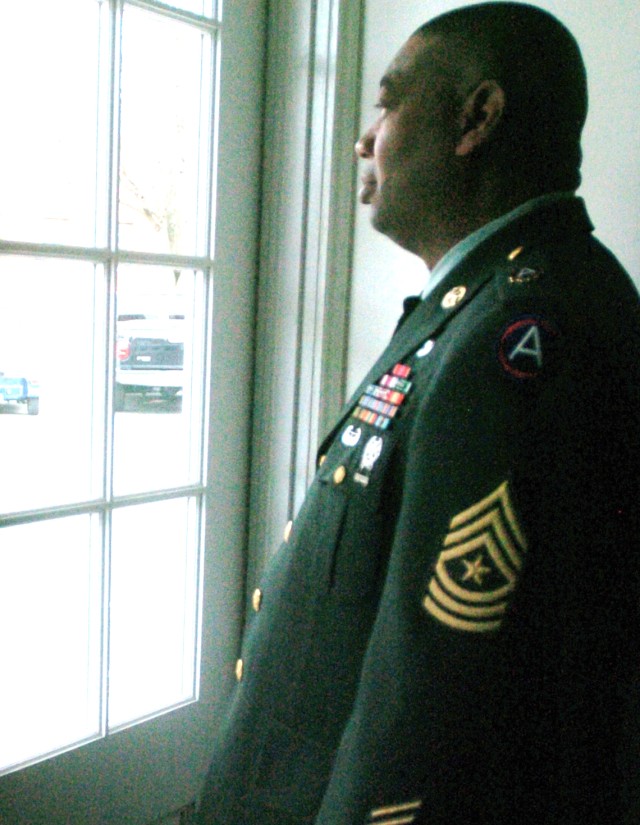
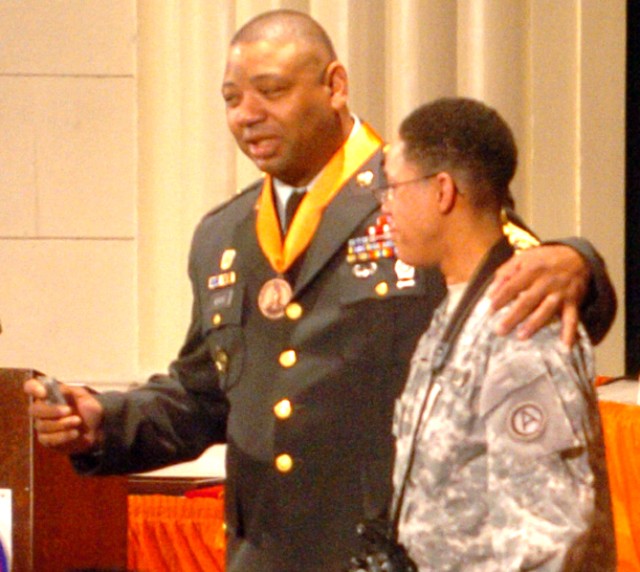
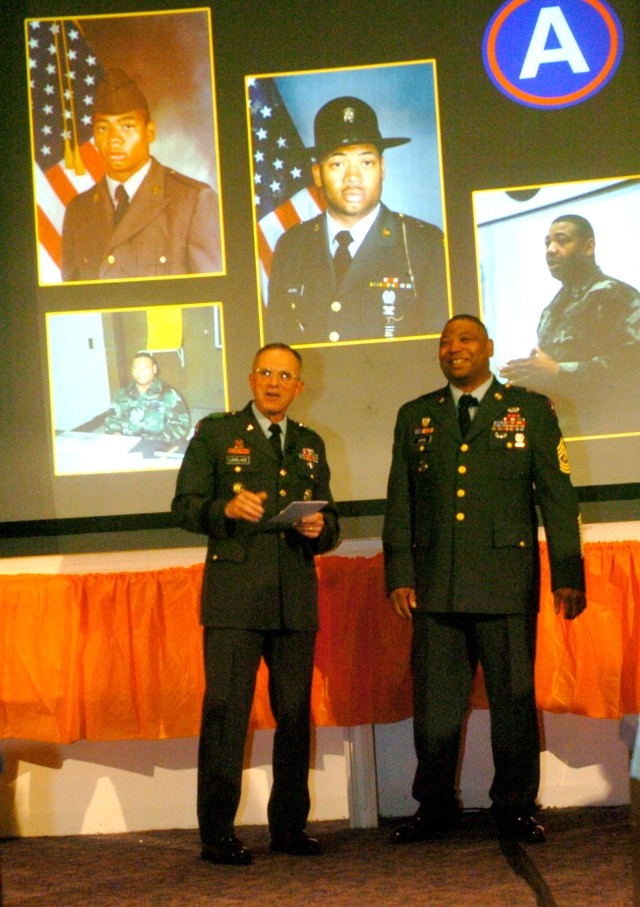
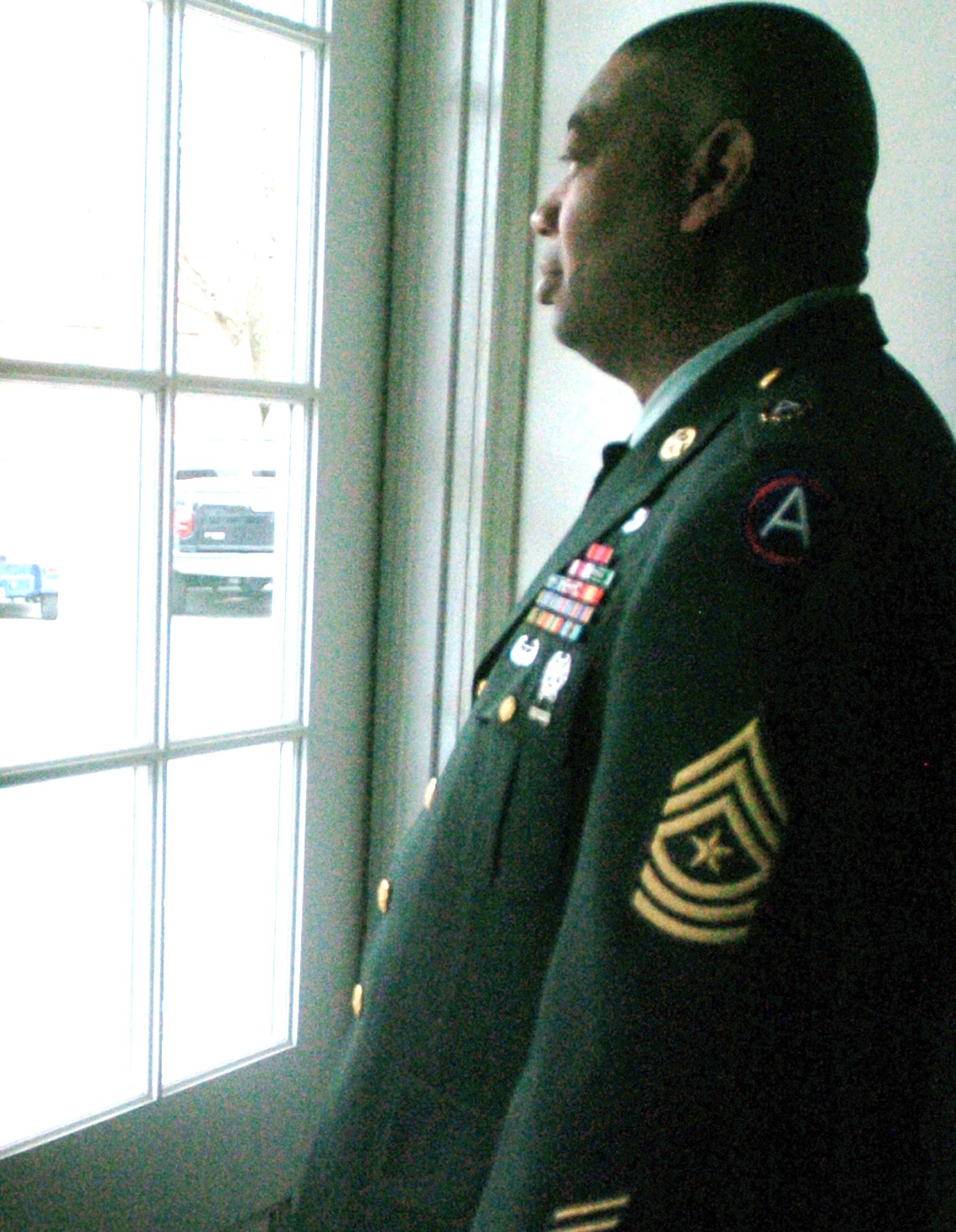
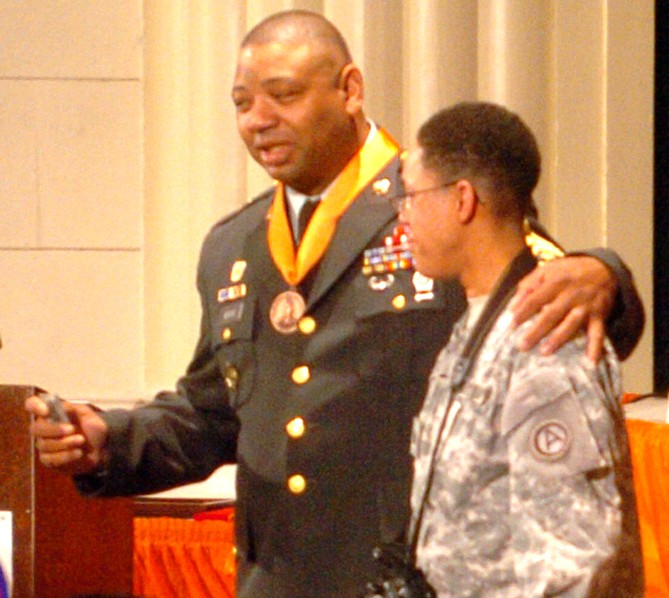
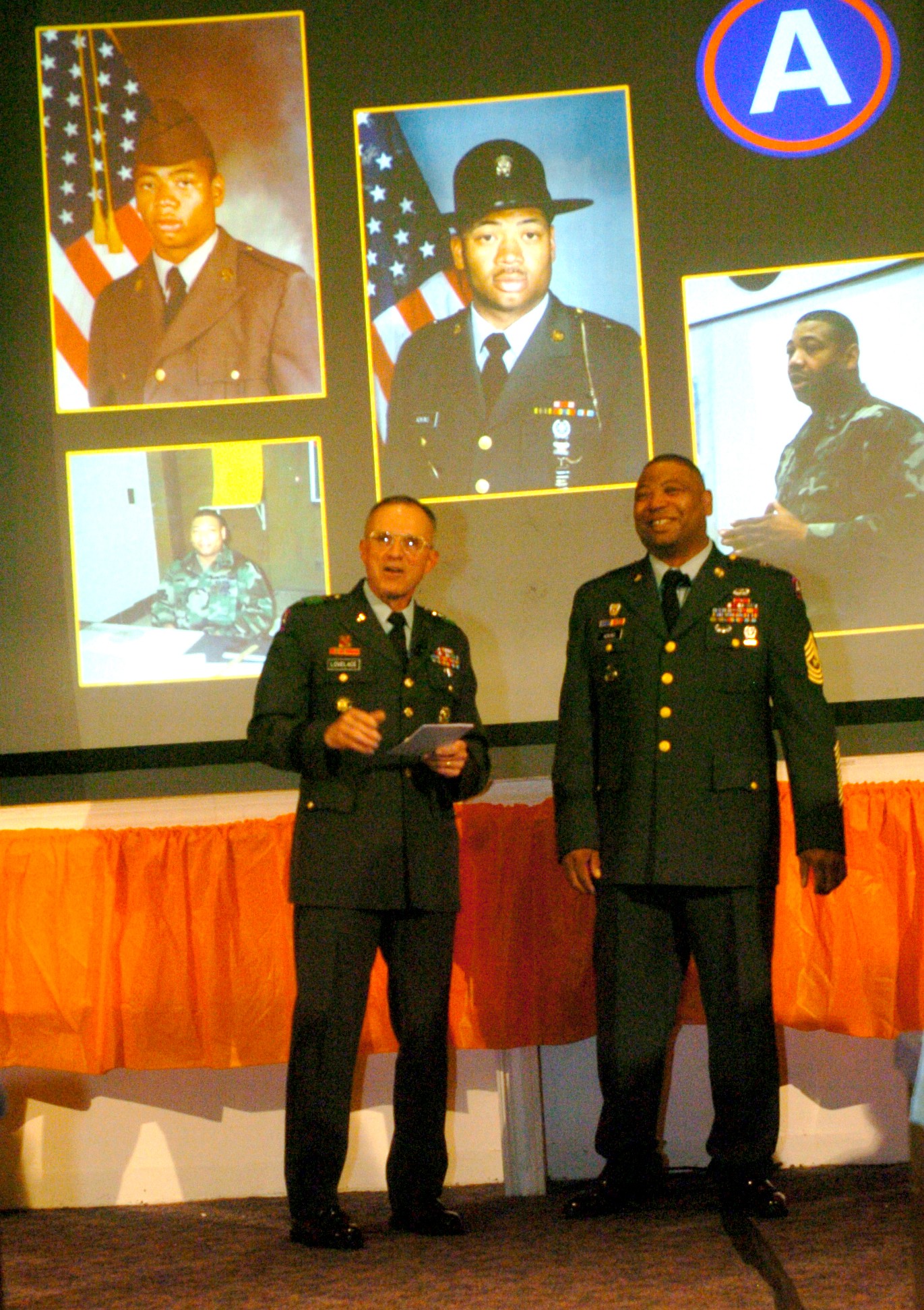
Social Sharing